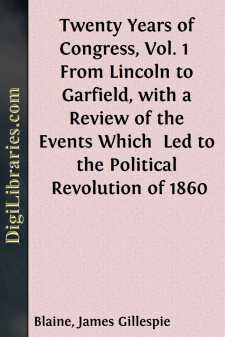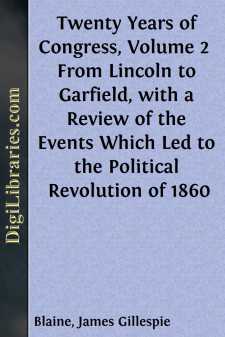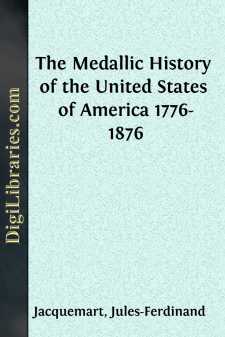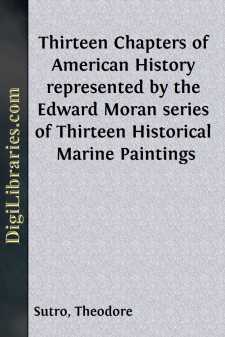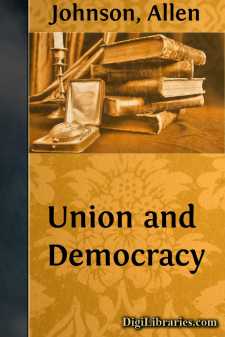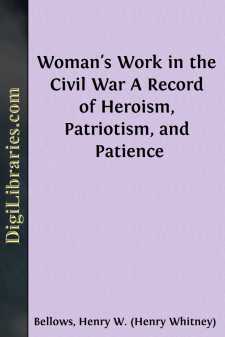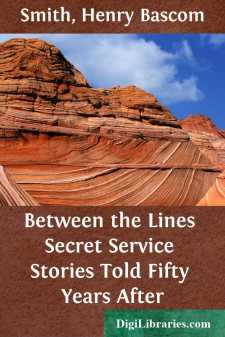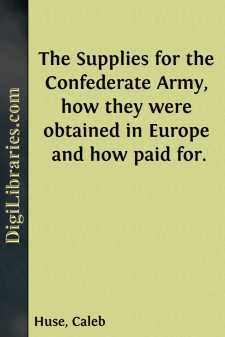History
- Africa 30
- Americas (North Central South West Indies) 50
- Ancient 68
- Asia 58
- Australia & New Zealand 8
- Canada 41
- Caribbean & West Indies 1
- Civilization 20
- Eastern Europe 12
- Europe 310
- Expeditions & Discoveries 60
- General 77
- Historical Geography 1
- Jewish 9
- Latin America 3
- Medieval 8
- Middle East 13
- Military 248
- Revolutionary 8
- Study & Teaching 5
- United States 353
- Western Europe 56
- World 13
History Books
Sort by:
CHAPTER I. Original Compromises between the North and the South embodied in the Constitution.—Early Dissatisfaction with National Boundaries. —Acquisition of Louisiana from France by President Jefferson.— Bonaparte's Action and Motive in ceding Louisiana.—State of Louisiana admitted to the Union against Opposition in the North.— Agitation of the Slavery Question in Connection with the...
more...
CHAPTER I. Abraham Lincoln expired at twenty-two minutes after seven o'clock on the morning of April 15, 1865. Three hours later, in the presence of all the members of the Cabinet except Mr. Seward who lay wounded and bleeding in his own home, the oath of office, as President of the United States, was administered to Andrew Johnson by Chief Justice Chase. The simple but impressive ceremony was...
more...
INTRODUCTION. Medals, by means of the engraver's art, perpetuate in a durable form and within a small compass which the eye can embrace at a glance, not only the features of eminent persons, but the dates, brief accounts, and representations (direct or emblematical) of events; they rank, therefore, among the most valuable records of the past, especially when they recall men, deeds, or...
more...
by:
Theodore Sutro
INTRODUCTORY. The Thirteen Paintings, to a history and description of which (and incidentally to a brief memoir of their creator, Edward Moran) these pages are devoted, are monumental in their character and importance. Mr. Moran designated them as representing the "Marine History of the United States." I have somewhat changed this title; for even the untraversed "Ocean" and the landing...
more...
by:
Allen Johnson
CHAPTER I THE ORDEAL OF THE CONFEDERATION It was characteristic of the people of the United States that once assured of their political independence they should face their economic future with buoyant expectations. As colonizers of a new world they were confident in their own strength. When once the shackles of the British mercantile system were shaken off, they did not doubt their ability to compete...
more...
PREFACE. The preparation of this work, or rather the collection of material for it, was commenced in the autumn of 1863. While engaged in the compilation of a little book on "The Philanthropic Results of the War" for circulation abroad, in the summer of that year, the writer became so deeply impressed with the extraordinary sacrifices and devotion of loyal women, in the national cause, that he...
more...
by:
Alfred Burnett
The author of the following sketches, letters, etc., has been known to us for lo, these many years. We have always found him "a fellow of infinite jest," and one who, "though troubles assailed," always looked upon the bright side of life, leaving its reverse to those who could not behold the silver lining to the darkling clouds of their moral horizon. We could fill a good-sized volume...
more...
APOLOGY. Fifty years ago! Gracious me! It makes me think of my age to talk of it. Yes, just fifty years ago was enacted the greatest tragedy the world ever saw, THE CIVIL WAR. I entered the service at twenty and one-half years of age and served three and one-half years. At different times I have told of some of my experiences, which seemed to interest. Sometimes I have talked to literary men, story...
more...
by:
Caleb Huse
REMINISCENCES my return in May, 1860, from a six months' leave of absence spent in Europe, I found an appointment as professor of chemistry and commandant of cadets in the University of Alabama awaiting my acceptance. During my absence the President of the University and a committee of the Board of Trustees visited West Point and the Virginia Military Institute and, pleased with the discipline of...
more...
CHAPTER I. THE AFTERMATH OF WAR When the armies of the Union and of the Confederacy were disbanded in 1865, two matters had been settled beyond further dispute: the Negro was to be free, and the Union was to be perpetuated. But, though slavery and state sovereignty were no longer at issue, there were still many problems which pressed for solution. The huge task of reconstruction must be faced. The...
more...


